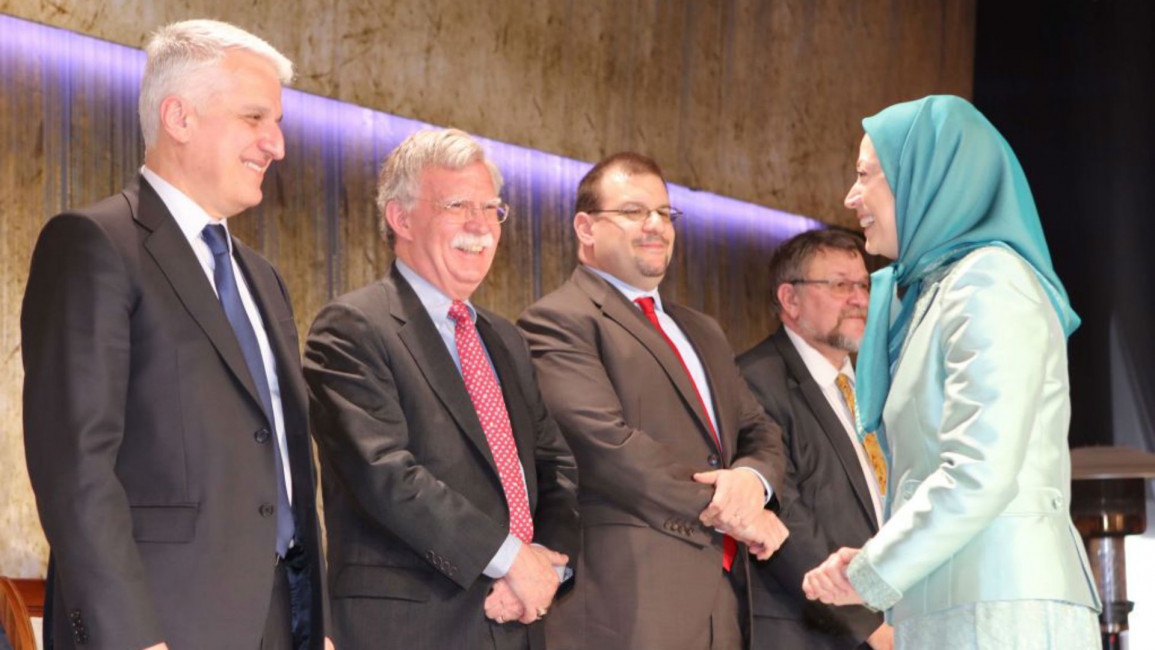
Trump hawks regime change policy would be a disaster for Iranians
Every Spring, when Iranians celebrate new year at Nowruz, the US president gives a speech directed at the Iranian people that usually seeks to distinguish them from the regime.
This year, President Trump released a statement in which he said, among other things, that: "Twenty-five centuries ago, Darius the Great asked God to protect Iran from three dangers: hostile armies, drought and falsehood. Today, the Iranian regime's Islamic Revolutionary Guard Corps (IRGC) represents all three."
"Despite the oppression they face, Iranians are fighting to reclaim their rights," Trump added. "They long for a springtime of hope, and the United States stands with the Iranian people in their aspirations to connect to the wider world and have a responsible and accountable government that truly serves their nation's interests."
Espousing sympathy for Iranians, and admiration for their proud heritage is effective diplomatic rhetoric, since it doesn't demonise ordinary Iranians, just their rulers. However, when accompanied with policies that harm those very people, it rings hollow.
Iran is suffering one of its worst economic crises in years. The Iranian rial has hit a historic low as a result of Trump's pullout of the Iran deal, coupled with the Iranian regime's demonstrable inability and ill-preparation to deal with such a crisis.
 |
Iran is suffering one of its worst economic crises in years |  |
This is adding to Iran's already enormous brain drain, among the worst on the planet, that is seeing the brightest and most well-educated Iranians leaving the country, likely for good. The middle-class is being put under immense pressure and its survival is at risk if the current economic crisis persists.
Such a tragic outcome would have the paradoxical effect of strengthening the regime, since any successful grassroots political change needs a viable middle class, and could even increase the likelihood of war in the long-term.
Read more: John Bolton's ties to Iranian MEK make him more lobbyist than statesman
Most Iranians, both inside and outside the country, who disagree strongly with many aspects of the Iranian theocracy, are unlikely to support a policy that will destroy the remnants of the middle-class in the country, and jeopardise what could well become a hugely successful, prosperous and pluralistic post-Islamic Republic future.
Twitter Post
|
Ardeshir Zahedi, a former Iranian diplomat during the reign of the last Shah of Iran who is certainly no supporter of the current government recently lambasted the current US policy toward Iran.
"Bullying rarely succeeds and has never succeeded against the nation of Iran," he declared, adding that Iran "has never stooped and bowed to foreigners and has always remained united in the face of adversity."
Trump's national security advisor John Bolton is a really striking example of how Trump's administration is taking an aggressive posture against Iran, not just its leadership.
Bolton is a ardent supporter of the People's Mujahedin of Iran (MEK), a militant Iranian exile group which sided with Saddam Hussein in his war against Iran in the 1980s and is consequently fiercely despised by most Iranians. Bolton is on record telling an MEK rally that he hopes to celebrate with them in Tehran "by 2019".
Journalist Jason Rezaian, who was himself imprisoned in Iran for 18 months, pointed out that after seven years of living in Iran he heard Iranians express support for everything from forceful regime change, a restoration of the Pahlavi monarchy, a peaceful transition "from clerical to secular rule" but never "a person who said the MEK presented a viable alternative".
This is emblematic of the failure of the Trump administration to devise a remotely viable strategy to bring about regime change in Iran.
 |
The Trump administration's policy is arguably the worst to date by far |  |
While Iran's leadership has proven adept at arresting or even assassinating leaders to nip any serious opposition in the bud, the MEK has no support in the country, as Rezaian so succinctly demonstrated.
The Iraq War showed how little support opposition leaders to Saddam who lived outside the country for decades actually had inside, after that brutal regime was toppled. The MEK has even less in today's Iran.
Other than the progress made by the previous administration, the US has had no real diplomatic relations with Iran for a staggering four decades now. The Trump administration's policy is arguably the worst to date by far, and unless fundamentally revised is bound to have disastrous results for the people of that country.
Paul Iddon is a freelance journalist based in Erbil, Iraqi Kurdistan, who writes about Middle East affairs.
Follow him on Twitter: @pauliddon
Opinions expressed in this article remain those of the author and do not necessarily represent those of The New Arab.




